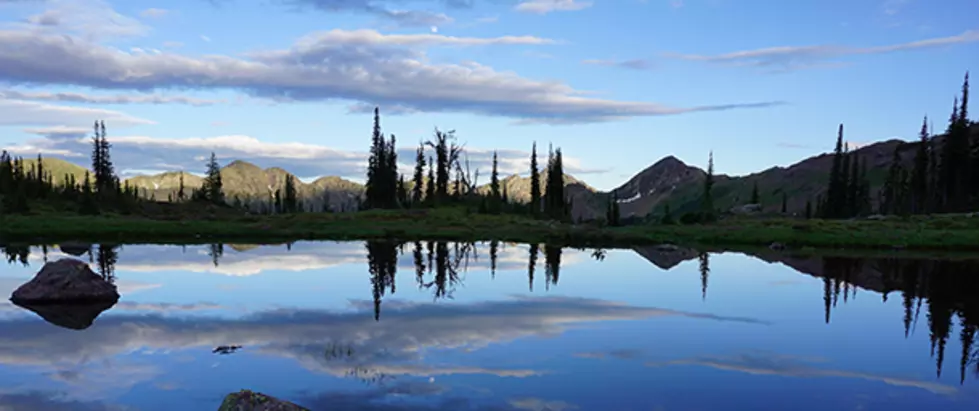
Viewpoint: Wilderness ‘purists’ the last hope for Montana’s wild places
Concerning Jeff Reed’s recent damnation of those of us who want to protect our last roadless lands, I must ask: who is the real problem? Is it those Montanans who want to protect of our last wild heritage or the collaborators poised to give up half of it to claim a faux victory?
For more than five decades, I have been a staunch advocate for wilderness, including spending several years on the Montana Wilderness Association council, American Hiking Society board and several other pro-wilderness nonprofits. When I gave talks on wilderness preservation. I always started out with a clean sheet of typing paper, saying this is the size of our wilderness about the time Columbus or the Vikings were discovering us, 100 percent wilderness. Giving out relative dates, I ripped the paper in half again and again and again, until I had a little one-inch square of paper representing our remaining roadless lands today.
“And now that we’re down to the last 6 percent or less,” I would say, “politicians still want ‘balance” even though anything close to balance is no longer an option. Balance means going down to 3 percent, then more splits after that.”
Nowadays, people like Jeff Reed, and many supposedly pro-wilderness groups sound just like those politicians willing to give up prime swaths of our last roadless lands to get any wilderness bill passed. Sadly, our primary voice for wilderness in Montana, Wild Montana, is among the groups willing to give up wilderness to get wilderness. You have to wonder why the nonprofit decided to remove the word “wilderness” from its name.
Here in Montana, we still have approximately 6.3 million acres of roadless land, much of it (about 4 million acres) some of it already protected as wilderness and parks. That’s roughly 7 percent of the state and 23 percent of our public lands. That means 77 percent of our public lands have already been “balanced” away to various resource developments inconsistent with wilderness values. You build a road into a roadless area, and it’s non-wilderness forever.
I stand with those who want to protect all of our last unprotected roadless lands, about 2.3 million acres, half of which are temporarily protected as wilderness study areas. We have already given up much more wilderness than we should have, and should not give up another acre. If that’s the definition of a purist, well, then, I am proud to wear the label. And I am not alone.
I am not against collaboration or negotiating with resource-extraction stakeholders, but this is hardly a new idea. I was on the MWA council in 1983 when we passed the last major wilderness bill in Montana, the Lee Metcalf Wilderness. In our collaboration, we were faced a most difficult decision, a choice between not getting any wilderness bill or giving up the Jack Creek drainage between Ennis and Big Sky, the vital link between the bulk of the Lee Metcalf Wilderness and the Spanish Peaks.
I was one of the “no” votes on the council, but the majority prevailed and gone forever was our chance for a united wilderness in the Madison Range. If anybody has been up in Jack Creek above Big Sky lately, they know how it all turned out.
Going back further to 1978 and the creation of the Absaorka-Beartooth Wilderness, which was almost two separate wildernesses. We purists were faced with another tough choice, give up the Big Timber to Cooke City corridor for a new road or hold out for a unified wilderness. This time we held our ground and prevailed. Thanks to the purists, there will never be a road separating these two magnificent wild areas. I wonder how today’s collaborators would have voted.
I have no problem including non-wilderness provisos in a wilderness bill. For example, I’m agreeable to more logging in that 77 percent of our public lands already laced with roads. I can agree to allowing mountain biking in protected areas (even if they can’t be “Big W” wilderness) and setting aside already-roaded areas for motorized recreation. I am okay with any statutory protection of our last roadless lands. But I am not willing to give up wilderness to get wilderness.
Today’s collaborators crossed the red line when they decided to give up key wilderness study areas and other prime roadless lands in an attempt to get any wilderness bill passed. That’s when we purists started opposing these complicated collaborative bills like Jon Tester’s “Forest Jobs” bill, the Blackfoot Clearwater Stewardship Act and the Rocky Mountain Front Heritage Bill, all of which gave up key roadless areas to achieve a shallow success. Same goes for the current collaborative process for the Gallatin Range.
Read between the lines in Jeff Reed’s commentary. What he is really saying is that we purists have been able to put up some roadblocks to plans to further “balance” our wilderness heritage, and that frustrates him and his brethren. In response, I say collaborate away, but don’t give away our last roadless lands. If we can agree on that point, then, we can all come together, as it should be.
Bill Schneider is a retired outdoor writer who formally wrote a weekly Wild Bill column for the non-defunct NewWest.Net online magazine.
